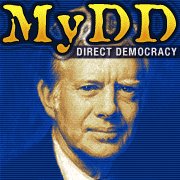Politicizing Intelligence and Breaking the Law
Bush Hides Lies By "Secret" Classification. So what else is new?

With a little help from Mr. Peabody and Sherman, let's set the way back machine to February 5, 2003, destination United Nations in New York for Remarks to the United Nations Security Council from United States Secretary of State Colin L. Powell:
One of the most worrisome things that emerges from the thick intelligence file we have on Iraq's biological weapons is the existence of mobile production facilities used to make biological agents.
Let me take you inside that intelligence file and share with you what we know from eyewitness accounts. We have first-hand descriptions of biological weapons factories on wheels and on rails.
The trucks and train cars are easily moved and are designed to evade detection by inspectors. In a matter of months, they can produce a quantity of biological poison equal to the entire amount that Iraq claimed to have produced in the years prior to the Gulf War.
Although Iraq's mobile production program began in the mid-1990s, UN inspectors at the time only had vague hints of such programs. Confirmation came later, in the year 2000. The source was an eyewitness, an Iraqi chemical engineer who supervised one of these facilities. He actually was present during biological agent production runs. He was also at the site when an accident occurred in 1998. 12 technicians died from exposure to biological agents.
We have diagrammed what our sources reported about these mobile facilities. Here you see both truck and rail-car mounted mobile factories. The description our sources gave us of the technical features required by such facilities is highly detailed and extremely accurate.
As these drawings, based on their description show, we know what the fermentors look like. We know what the tanks, pumps, compressors and other parts look like. We know how they fit together, we know how they work, and we know a great deal about the platforms on which they are mounted.
As shown in this diagram, these factories can be concealed easily -- either by moving ordinary looking trucks and rail-cars along Iraq's thousands of miles of highway or track or by parking them in a garage or a warehouse or somewhere in Iraq's extensive system of underground tunnels and bunkers.
We know that Iraq has at least seven of these mobile, biological agent factories. The truck-mounted ones have at least two or three trucks each.
The Washington Post, in a front page story today, sets the wayback machine to May 29, 2003:
Lacking Biolabs, Trailers Carried Case for WarPoliticizing the intelligence by using "Secret" classification:
Administration Pushed Notion of Banned Iraqi Weapons Despite Evidence to Contrary
On May 29, 2003, 50 days after the fall of Baghdad, President Bush proclaimed a fresh victory for his administration in Iraq: Two small trailers captured by U.S. and Kurdish troops had turned out to be long-sought mobile "biological laboratories." He declared, "We have found the weapons of mass destruction."
The claim, repeated by top administration officials for months afterward, was hailed at the time as a vindication of the decision to go to war. But even as Bush spoke, U.S. intelligence officials possessed powerful evidence that it was not true.
A secret fact-finding mission to Iraq -- not made public until now -- had already concluded that the trailers had nothing to do with biological weapons. Leaders of the Pentagon-sponsored mission transmitted their unanimous findings to Washington in a field report on May 27, 2003, two days before the president's statement.Breaking the Law, from Bush's own Executive Order 13292 from March 28, 2003, which was an amendment to Executive Order 12958 -- Classified National Security Information:
The three-page field report and a 122-page final report three weeks later were stamped "secret" and shelved. Meanwhile, for nearly a year, administration and intelligence officials continued to publicly assert that the trailers were weapons factories.
Sec. 1.7. Classification Prohibitions and Limitations. (a) In no case shall information be classified in order to:
(1) conceal violations of law, inefficiency, or administrative error;
(2) prevent embarrassment to a person, organization, or agency;
(3) restrain competition; or
(4) prevent or delay the release of information that does not require protection in the interest of national security.

















0 Comments:
Post a Comment
<< Home